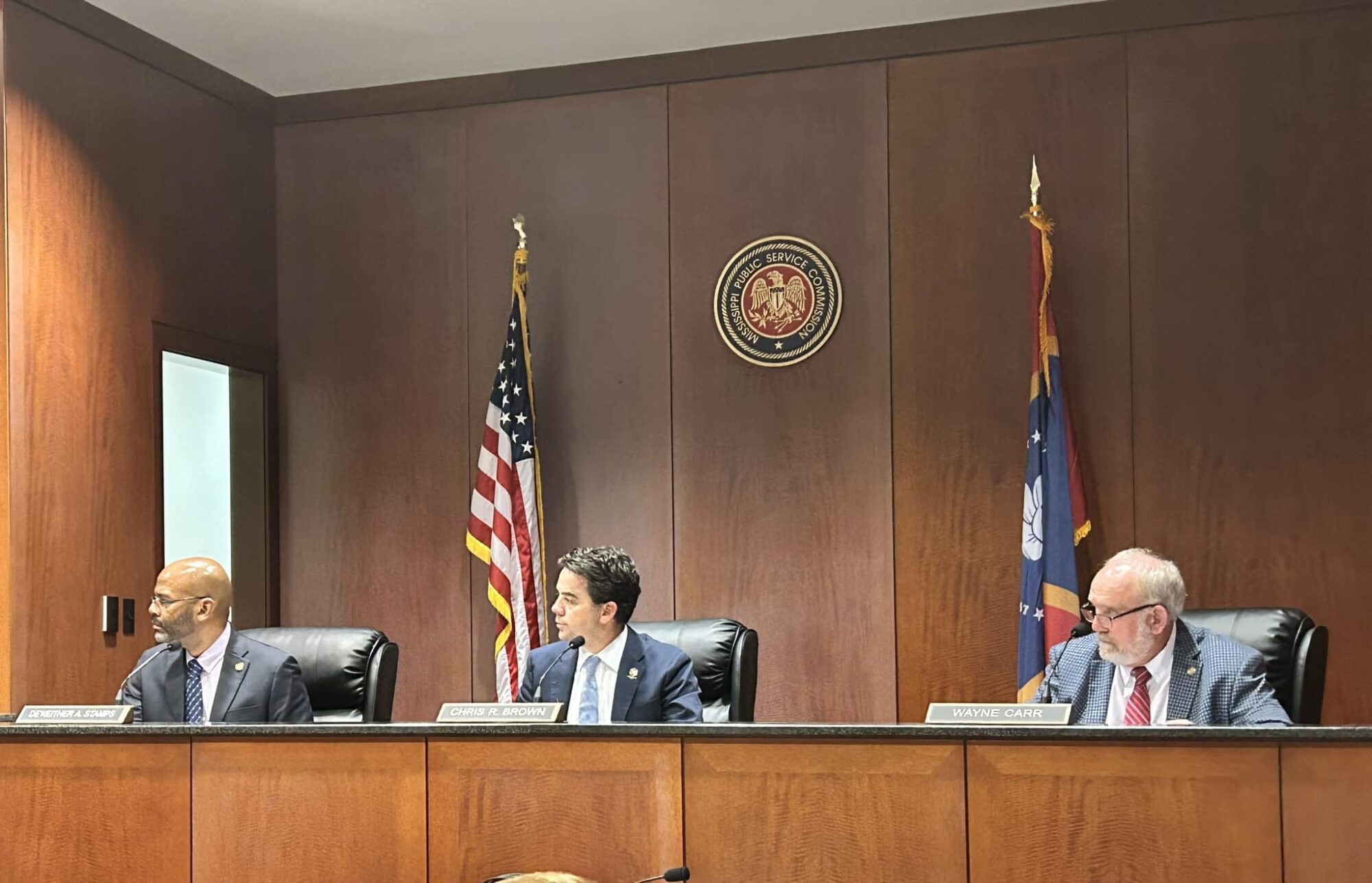
- The legislation mandates that pre-screening take place before an affidavit is filed when dealing with involuntary commitments.
A new law set to go into effect this year will help prevent those dealing with mental illness from being held in a jail while awaiting assessment and treatment. The changes are the result of HB 1640, authored by State Rep. Sam Creekmore (R), which was signed into law by Governor Tate Reeves (R) earlier this month.
The legislation addresses situations where Mississippians dealing with mental health issues have, at times, been held in a cell while waiting for a bed to receive treatment as part of the civil commitment procedure initiated by concerned family members.
Under the current process, a person files an affidavit with their local Chancery Court for a family member who is unwilling to voluntarily seek help for a mental health issue. After the affidavit is filed, a writ is issued, allowing local law enforcement to detain that person in question.

“Following the writ, the person is picked up by law enforcement for a pre-screening to determine if they meet commitment criteria, and then two examinations occur,” said Mississippi Department of Mental Health Executive Director Wendy Bailey. “Many times, while this is occurring the person is held in jail because the person has been picked up on a writ before they have been seen by a mental health professional.”
To curb instances of being held in jail when no crime was committed, the new law mandates that pre-screening take place before the affidavit is filed. Bailey told Magnolia Tribune this will enhance the diversion process.
“It connects the person and/or family to the Community Mental Health Center for a pre-affidavit screening in order to enhance the diversion process and allow for other options for treatment such as a crisis stabilization unit or follow-up appointment or medication adjustment,” Bailey explained, adding, “before the courts and law enforcement become involved.”
Affidavits will now be required to state that less restrictive treatment other than involuntary commitment was considered as well as the reason why commitment is required. Bailey said the aim is for the Chancery Clerk’s office to connect the family with a local community mental health center first.
After the community mental health center has been notified, there is a 24-hour deadline to perform the pre-screening. The screening process can be conducted at a community mental health center, or if the person in question is unwilling to leave their home, the process can be conducted by a Mobile Crisis Response Team member at the home.
“This ensures the person’s rights are not violated and gives them the opportunity to see a mental health professional for a pre-screening when possible before law enforcement is involved,” Bailey said.
Rep. Creekmore said the legislation allows law enforcement to get involved if the potential patient is violent or the family feels unsafe. Law enforcement can escort the Mobile Crisis Response Team member who will conduct the screening to the home.
“There is also a safety valve if someone is too violent or the person refuses to be screened, then the affidavit can be filed and the process continues,” Bailey added.
If for some reason that person has to be detained by law enforcement, the agency will be required to exhaust all potential resources to find a bed at a medical facility before holding that person in a jail cell. Those options can include a Community Mental Health Center (CMHC), Crisis Stabilization Unit (CSU) or a hospital, for example. If no available resources are found within that county, the person can be transported to surrounding counties.
Bailey said the bill also mandates the creation of a daily updated bed registry to assist with finding available out-of-county services.
“The state now has 196 Crisis Stabilization Beds throughout the state. Many times, if a bed is not available in one region, there is a vacant bed in another region,” Bailey noted.
If after exhausting all resources a jail cell is the only option, the person in question can only be held for 24 hours, unless they are violent. Then, the agency can request a 24-hour extension from the Chancery Court judge, Rep. Creekmore said. While being held in the jail, that person will be provided with the treatment and medicine they require.

Creekmore pointed out the conservatory aspect to the legislation, allowing families dealing with loved ones who regularly suffer from mental health issues have an avenue to get help.
“I think the conservatorship will help,” Rep. Creekmore said. “The more times a person is picked up, then a conservatorship can be established to help them get through the process quicker.”
Another change in the new law reduces the time allowed to hold a hearing, moving the process from within 5 to 10 days to 3 to 5 days.
When the bill becomes law on July 1st, a recordkeeping and reporting procedure will be established to better inform each county’s Board of Supervisors and the Department of Mental Health. The required report will include the occupancy percentage of that region’s CSU, how many people were held in jail after each commitment process started, how many pre-affidavit screenings were performed, the number of people directed to less restrictive treatment options, how many CSU denials occurred, and the reason for the denial.
Rep. Creekmore said the reporting component was added since each county’s Board of Supervisors provides financial assistance to CMHCs and has “boots on the ground.”
“They need to know exactly what is going on,” he said.
This year’s reforms come on the heels of HB 1222 which passed in 2023. Rep. Creekmore said the improvements being made are positive but there remains more to achieve.
“We’re continuing to see improvement from what House Bill 1222 did last year, and this is an extension of that bill. So, I really think the next few years, with the reporting and with the changes to the scope of the process, this will only compound the good things that are happening in mental health,” Rep. Creekmore said.
Next legislative session, Creekmore intends to present legislation that could create a grading scale to measure CMHC performance along with a plan of action to address low performing facilities. He would also like to create a program similar to Tennessee’s where qualified mental health patients receive Medicaid to help with housing on a tier-based scale.









